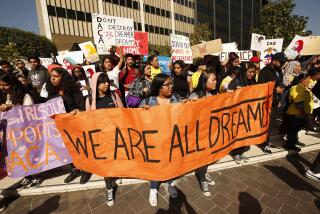They asked you WHAT in your job interview?
What is the most bizarre question you have ever been asked in a job interview? Take your time. I’ll wait.
While you think about it, consider one of the Top 10 Oddball Questions of 2016, published by job website Glassdoor.com. This one comes from Trader Joe’s: “What would you do if you found a penguin in the freezer?” My favorite response posted online: “Close the door and stop drinking.”
OK, you’ve had enough time. What did you come up with?
Have you ever asked yourself whether that question or others like it was illegal? After all, shouldn’t prospective employers be limited to asking interview questions focused on the ability of the applicant to perform the job being filled?
The answer is no.
Yes, there are legal limits on interview questions. Those limits are set out in a California Department of Fair Employment and Housing fact sheet and similar guidance from the federal Equal Employment Opportunity Commission. For example, an interviewer can’t ask questions, even indirectly, about an applicant’s age, race, ethnicity, religion, mental or physical disabilities, child-bearing plans, or sexual orientation. If the applicant is rejected and challenges the decision, those questions will be evidence that the answers unlawfully and materially influenced the decision not to hire.
And an interviewer shouldn’t try to be clever about questions that may touch on these areas. A law firm interviewer asked one of my law school classmates, who clearly was an older student, when she graduated from high school. A lawyer asked that question – of a budding lawyer. Uh, no.
But beyond these off-limit areas, someone interviewing a job applicant may ask creative, even bizarre, questions. Such a question, framed by a skilled and experienced interviewer, may reveal something useful to the attentive applicant about the kind of workplace he is considering joining. The answer to such a question almost surely will reveal something useful to the attentive interviewer about the applicant the employer is considering hiring.
The Employer’s Legal Handbook, published by legal publisher Nolo, advises interviewers that “to avoid improper inquiries, stay focused on job requirements and company policies.” That certainly limits the legal risk of the interview, but at what cost? An overly literal application of that advice could lead an interviewer to avoid questions that would help evaluate whether the applicant is the kind of person who would make the company better, who would fit in with the company or clash with it instead.
A job applicant is a human being who is being considered by the employer to relate to other human beings, such as managers, co-workers, customers, and others. An applicant, even for an entry-level job, is not a robot without the ability to affect, or be affected by, the unique human dynamic of any given workplace.
Questions an employer can’t raise legally in a job application an employer also can’t raise legally in a job interview. Questions that are too off-the-wall may hurt a company’s reputation as an employer, and its reputation with other stakeholders as well. In the age of social media, word will get out.
Large companies understandably tend to standardize their interview process so that applicant answers may be compared. In addition, the interview is a time-constrained opportunity whose core purpose is to learn whether an applicant can perform a particular position on the team with excellence; interview time should never be wasted.
But an employer that is too cautious in its interviewing process, relying on interviewers to use their guts to fill in the gaps left by strictly limited questioning, may find itself with avoidable legal and managerial troubles down the road. Perhaps just as bad, it may result in the employer missing out on an applicant with an unprobed dimension that made that person, and not the one hired, the right person for the job.
Dan Eaton is a partner with the San Diego law firm of Seltzer Caplan McMahon Vitek where his practice focuses on defending and advising employers. He also is an instructor at the San Diego State University Fowler College of Business where he teaches classes in business ethics and employment law. He may be reached at [email protected]. His Twitter handle is @DanEatonlaw.
Business
More to Read
Inside the business of entertainment
The Wide Shot brings you news, analysis and insights on everything from streaming wars to production — and what it all means for the future.
You may occasionally receive promotional content from the Los Angeles Times.









